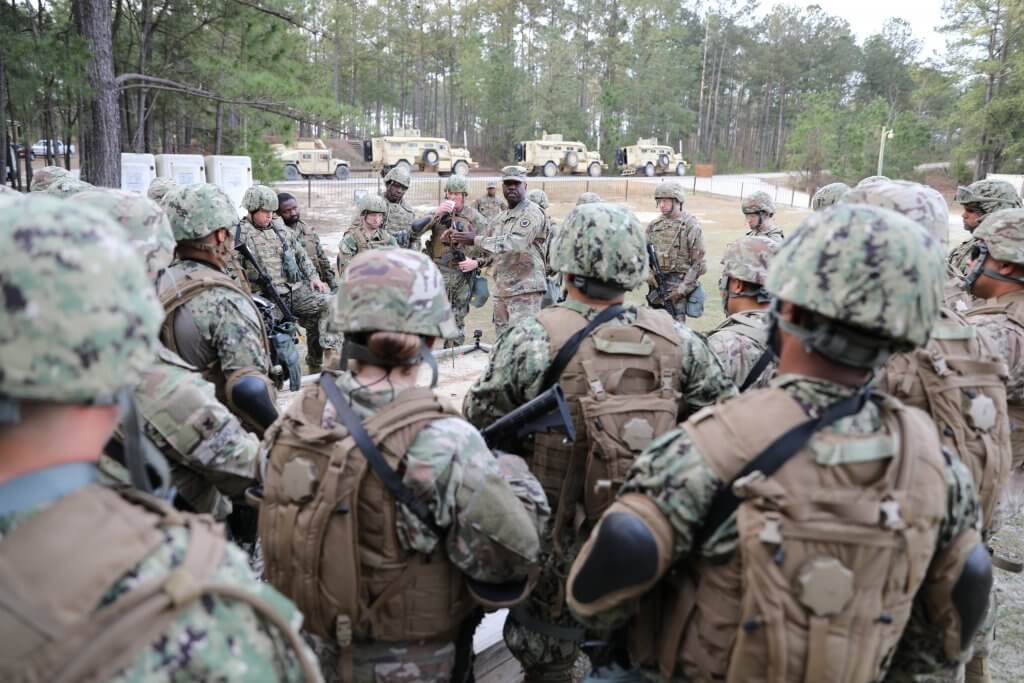Deployments are a fact of life in the military. No matter what branch you serve for, your number is likely to get called at some point.
My number was called five times during my six plus years on active duty. The final deployment was actually voluntary. My unit was short on qualified airmen and I had no immediate plans after my scheduled ETS date, so I signed a six-month enlistment extension and deployed with my squadron.
Should you raise your hand or wait to be called?
Each military branch is different, so you may not have a choice when it comes to deployments. If your unit is called, you’re going -– end of story. That’s an expected part of the job. However, there may also be reasons you seek out a deployment opportunity, either as part of your unit or as an augmentee for another unit downrange. Sometimes there are more people in your unit than open deployment billets, so volunteers are taken first.
Should you raise your hand? Or wait to be called?
I can’t answer that question for you. But we can look at this decision together.
Pros and cons of deploying
Comparing pros and cons is a great way to analyze difficult decisions. Most people think about the downsides of deploying first – being away from your family and civilian employment, hurry up and wait, spending months in a dangerous location, being bored out of your mind waiting for something to happen, then wishing it didn’t happen when it did.
None of these are fun, and it’s easy to fixate on them.
So, let’s put those aside and focus on the benefits of deploying as a member of the reserve component.
Deploying can help your career.
Deployments and the increased responsibilities look great on your enlisted or officer performance report. Deploying doesn’t guarantee a promotion, but you will almost certainly return to your unit and your civilian life as a better person.
You can earn veteran status.
Simply serving in the reserve component isn’t enough to earn veteran status or eligibility for certain veteran benefits. You must also serve on active duty. Most deployments are six months or longer, which is enough to earn veteran status and eligibility for a variety of benefits.
VA loan eligibility.
Reserve component members can earn VA loan eligibility after serving 90 consecutive days on active duty. Otherwise, you would need to serve a minimum of six creditable years to be eligible.
Post-9/11 GI Bill eligibility.
The GI Bill is one of the most valuable veteran benefits. However, it can only be earned on active duty. It takes three years of active duty service to qualify for full Post-9/11 GI Bill benefits, but as few as 90 days of active duty service qualifies veterans for 40% of the Post-9/11 GI Bill.
Veterans earn an additional 10% of the benefit for each six months they serve on active duty. For example, a six-month deployment is good for 50% of the benefit, 12 months equals 60%, and so on.
Pay and benefits are very good.
I’m sure you’re already familiar with the active duty pay charts for your grade and time in service, but being activated opens the door to other allowances and benefits, including BAS, BAH, TRICARE for yourself and your family, Family Separation Pay, and other benefits.
Some organizations offer employees additional benefits.
Some companies offer differential pay if your military pay is less than your civilian pay. Some state and federal jobs will also allow you to double-dip, and receive your civilian pay while you earn your military pay, at least for a certain number of hours or pay periods. And virtually all organizations allow you to retain your seniority within your organization. Finally, your job is protected under The Uniformed Services Employment and Reemployment Rights Act of 1994 (USERRA).
Early retirement pay.
The normal reserve retirement age is 60. However, Reservists who were mobilized after Jan. 28, 2008 are eligible to receive their retirement pay three months early for each aggregate of 90 days of qualifying active duty service.
A chance to better yourself.
Deployments are a great time to get fit, take classes, dive deep into a hobby, or otherwise spend several months becoming the best person you can be.
Memories and experiences.
Not everything can be boiled down to pay and benefits. Deploying can change you in many unexpected ways. Friendships forged, experiencing different cultures, seeing different countries and landscapes – all of these can remain with you for a lifetime.
I can’t tell you whether or not you should raise your hand and volunteer if the opportunity arises, but from my own personal experience I can say that I have come back from each of my deployments as a better person.

